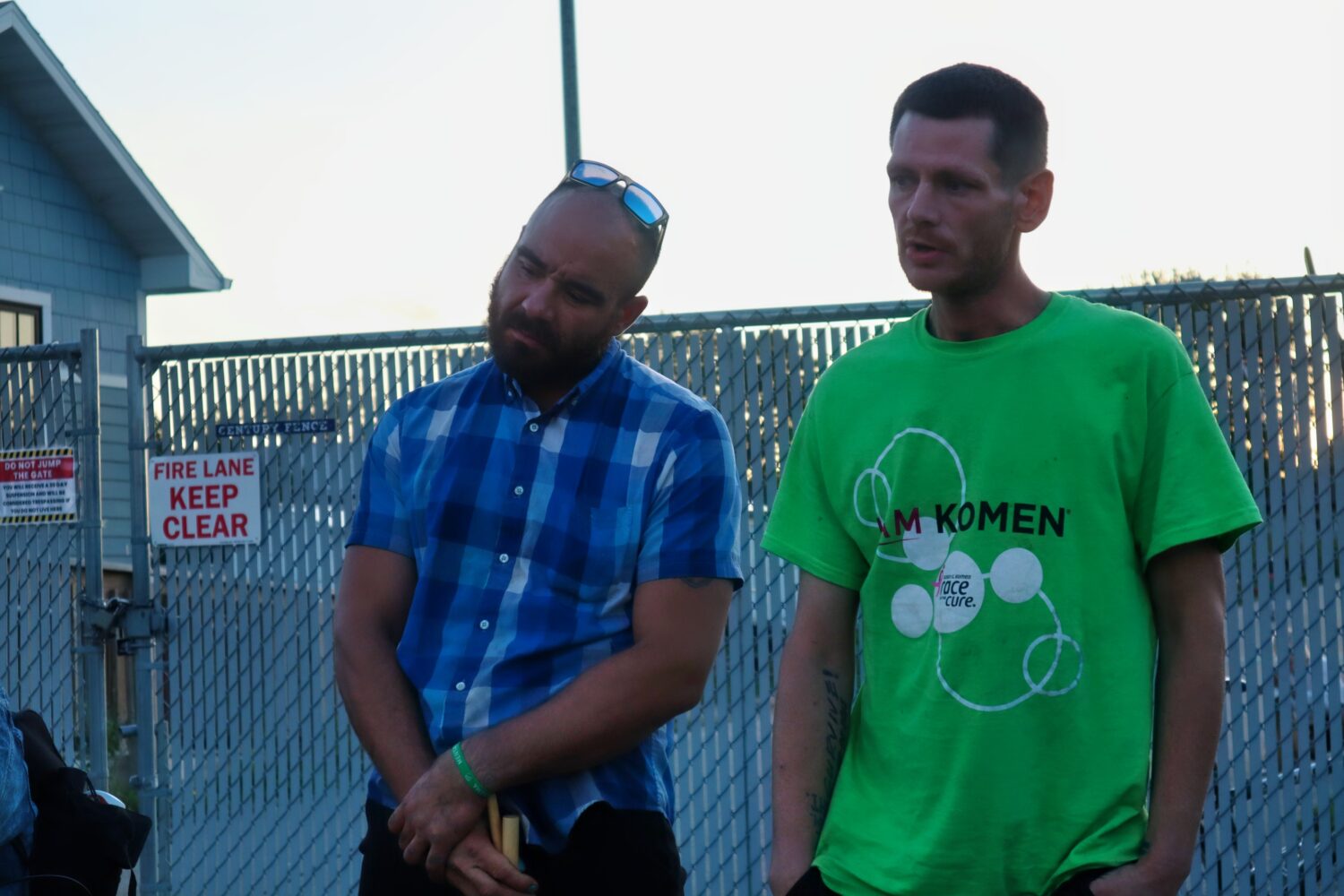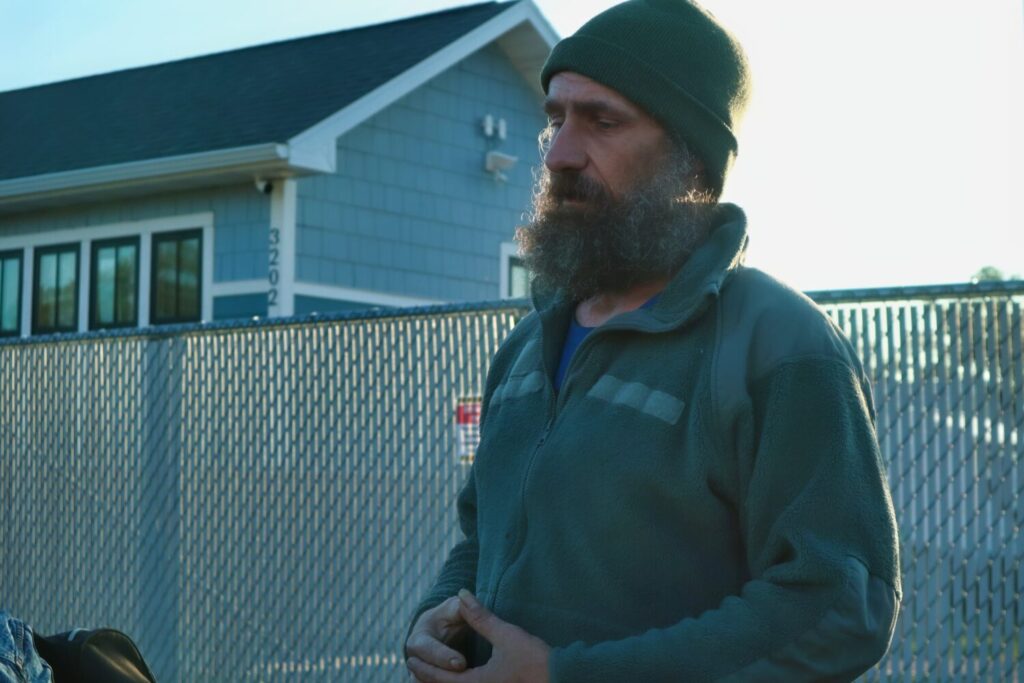
Community members rallied Wednesday in support of more than 20 unhoused individuals who will be displaced from the Dairy Drive campground this weekend.
Those currently living are now forced to leave their shelters at the Dairy Drive camp site, 3202 Dairy Dr., by Sept. 26 after Madison’s Common Council voted against renewing the contracts with Madison Street Medicine and Kabba Recovery Services to run the campground.
The shelter was opened in 2021 in the wake of the dismantling of an encampment at Reindahl Park. Later that year, the Madison Common Council passed a resolution declaring the encampment an emergency, which led to the creation of the campground on Dairy Drive. It was funded by Madison’s allocation from the American Rescue Plan Act, Local Fiscal Recovery Funds, COVID-related allocation of Community Development Block Grant funds, proceeds from tax incremental district 39, Dane County, a non-COVID federal grant, and private donations.
Federal funds for Dairy Drive have since run out, so future operations would have to come from other sources. Costs to operate Dairy Drive ranges between $60,000-70,000 every month for up to 29 people it could support. The city points to the planned Bartillion Shelter, 1902 Bartillion Dr., slated to open 2026, which can serve 250 people, as the solution as funds have dried out for the smaller Dairy Drive camp site.
At the rally at Dairy Drive, residents drew attention to what the location means for them. It offers consistent shelter, a dry place to sleep, no worry about having to move what little they own across the city almost daily, community, and facilities to shower.
It’s a haven for some semblance of safety, but it also allows unhoused folks to have an address — crucial to accessing essential services like banking, government benefits and finding jobs.
“[When] you don’t have an address, you have to work around that, which is incredibly difficult, and usually people don’t feel comfortable using their own name,” said James DeGray, a resident at Dairy Drive. “We are not born with houses on our backs.”
DeGray pointed to how the city has heralded the outcomes from the Dairy Drive campsite, yet won’t keep it running. Mixed reports from the City of Madison and Madison Street Medicine — boast a 60-80% success rate for individuals who stay at the location.

With only a short time left until they are required to leave the area, and as winter approaches, DeGray and other residents aren’t sure where they will go.
“Not only are we losing a place to sleep at night, we are losing our family. A lot of these people — I will not see you again,” said Hunter, another resident of Dairy Drive. “That’s just a fact, and this has become a lot of people’s safety. They feel safe here. Loved. Love is definitely here.”
Hunter stays at Dairy Drive and is frequently visited by his partner, Lucky. The two have felt the alternative to Dairy Drive at homeless shelters in Madison, where they do not feel safe or comfortable. They both recalled facing discrimination over being gay at other homeless shelters. They do not see other shelters as a viable place to stay.
However, both worry about the impending cold, with some confusion as to why it needs to be closed down almost immediately, if it will cost the city to dismantle Dairy Drive. Demolition is planned for November for a cost of $220,000 of the city’s Community Development operating budget, the Cap Times reported.
Community members asked how they could support those being displaced from Dairy Drive. Hunter and Lucky say jackets, blankets and non-perishable foods are great to donate. Gift cards to places like St. Vincent De Paul and Goodwill offer an ability to recoup these items on their own for when their possessions are confiscated — an inevitability for most unhoused, Hunter and Lucky said.
Additional rallies for the residents at Dairy Drive are planned Sept. 26 at 10 a.m. and Sept. 27 at 2 p.m.



